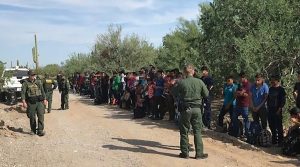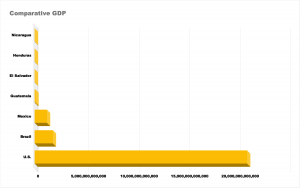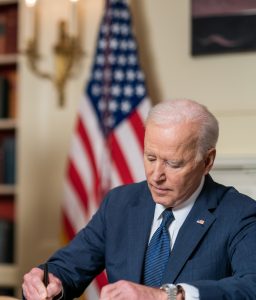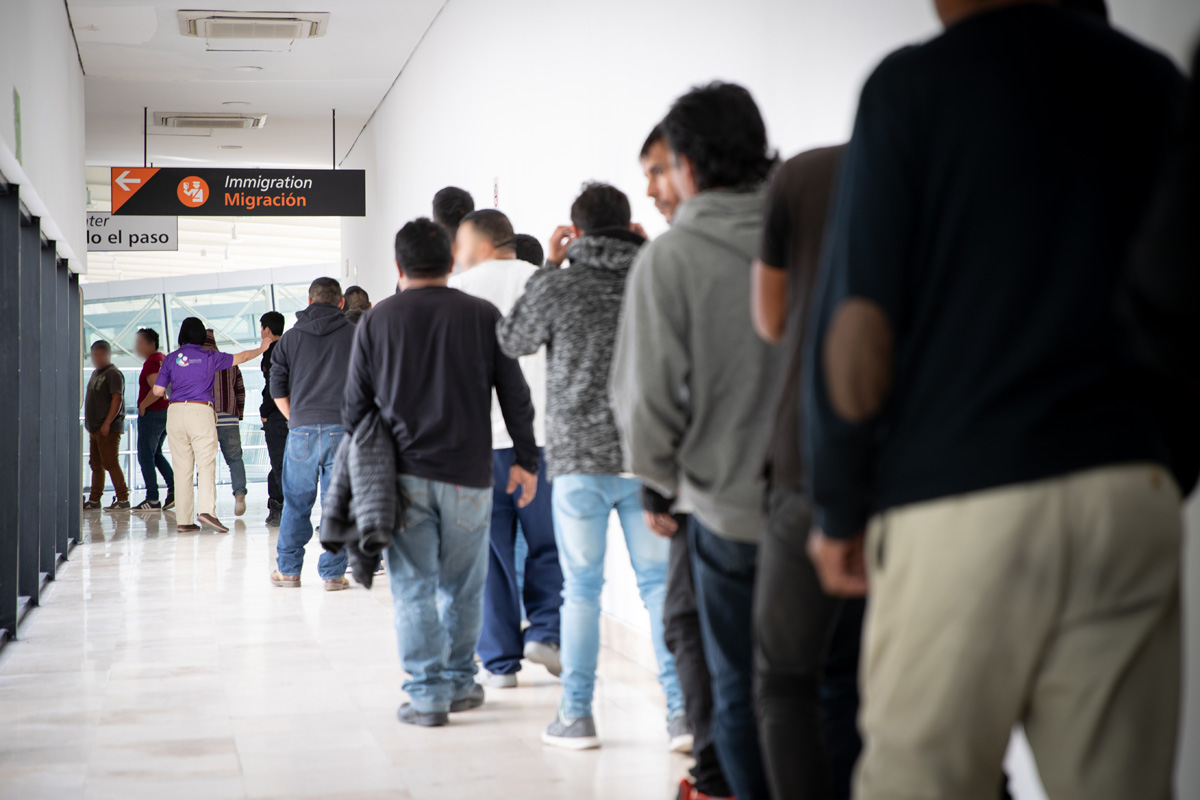Migrants have crossed the border illegally to work and make money in the U.S. for many years often working here in difficult occupations suffering from a lack of labor. For many American employers, these are the perfect workers because they are paid low wages and are willing to do harder work than Americans do. In time if they are lucky, they get approved for asylum or for becoming U.S. citizens.
The United Nations (UN) Office of Drugs and Crime reports that undocumented migrants cross the border with the assistance of human traficants, called “coyotes.” Migrants feel safer if the human smugglers coordinate the trips with their contacts to prevent themselves from being victims of “robbery, kidnapping, death or exploitation,” the UN said.
Coyotes charge between $1,800 to $12,000 per person. The smugglers deal with gangs, corrupt officials, bus drivers, taxi drivers, truck drivers, hotel operators, boat drivers and drug cartels, who all get some part of the money the undocumented pay coyotes.
The Economic Situation
Poor migrants usually borrow the money to hire coyotes, and once in America they work hard for a period of one or two years doing things like washing dishes, working in chickens plants or helping in construction to pay back the loan.

When migrants can save some money, they send it to their families. The main reason is helping those who live in miserable conditions back home, but sometimes the money is for buying a farm or opening a business in their hometowns.
The remittance of money from the U.S. is one of the most important revenue sources for the countries in Latin America. Those transfers of money are equal to a large part of those economies’ outputs. In Honduras the transfers stand for 22% of its output, in El Salvador 21%, Nicaragua 13%, and Guatemala 13%.
These resources help the economies of Central America with the lowest GDP in Latin America. The money is helpful especially now when the Covid-19 pandemic has increased poverty in this region due the economic lockdown and the lack of vaccines needed to recover the dynamic of these economies.
Mexico GDP of $1.2 Trillion Doesn’t Help Migration Problem
Mexicans lead the list of remittances from the U.S. to Latin America. In 2019, Mexican migrants sent home $38.5 billion. However, that money doesn’t stand for a big part of Mexico’s economic output because it is part of the group of countries with a GDP above $1 trillion in the world. In 2019, it was $1.2 trillion, second biggest in Latin America after Brazil with $1.8 trillion.
Being the neighbor of America gives Mexico the opportunity to be the second recipient of foreign investment in Latin America. Globalization brought a lot of resources there, boostered by the North American Free Trade Agreement (NAFTA), which Canada, Mexico and the U.S. signed in 1994. Mexico has a privileged place among the economies in the region, but has also a high level of income inequality, corruption, narcotraffic and violence—all drivers of migration that makes Mexico lead the procession into the U.S.

More than 60% of all Latin people living in the U.S. are Mexicans, and year after year they are the immigrants who most become citizens of this nation. In 2019, the number of Mexicans nationalized as Americans were 122,286 among a total of 843,593 immigrants from around the world. They are really ahead in this ranking; Chinese people are second with just 39,490 nationalized.
Biden Announces U.S. Investment in the Region
Mexico, Guatemala, Honduras, Nicaragua, Costa Rica and Panama are among the first 20 countries on the planet with the biggest income inequality, according to the Gini Index. El Salvador has less inequality. This country adopted the dollar as its currency 20 years ago, and that has maintained the inflation to a good level, but its economic growth is still very low, and the poverty is really high.

Although people from all over the world come to Central America to cross the border, in 2019 89% of these migrants were from Mexico and Central America.
The key for reducing migration is reducing poverty, and the White House knows it. In January, the administration of U.S. President Joe Biden announced an investment of $4 billion to help development in Honduras, El Salvador and Guatemala.
Biden’s administration seems willing to help, but it should also ask for better leadership of these countries to ensure the resources will be helpful. Unfortunately, for the last two American administrations, attending the crisis of migration at the border has largely obscured the fact that some presidents of these countries, where the money goes, act as authoritarians.
Mexican President Andrés Manuel López Obrador seems to be a left-wing authoritarian leader. Analyst Jorge Castañeda recommends that President Biden be concerned about the “abuses of President Obrador in threatening electoral authorities, singling out highbrow publications or backing the extension of the Supreme Court chief justice’s term by two years.”
The president of Nicaragua, Daniel Ortega, is another authoritarian leader of the left wing in Central America. He has been in power for 14 years, bringing to the economy of this country the lowest GDP in the region.
The president of Salvador, Nayib Bukele, is also seen as an authoritarian leader, in this case from the right wing. His party, which rules the legislature, voted to remove Salvador’s top prosecutor, General Raul Melara, and to remove all of the judges from the constitutional chamber of the nation’s Supreme Court.

The U.S. Department of State reported that many officials of the Central American government have been investigated for corruption, “some forced from office, and some even sent to prison. However, in most cases, corruption goes unpunished and unchecked, spreading through society like a wildfire.”
Drug Trade Increases Migration
This environment is not attractive for any investors, and governments need a lot of money to pay for public health and education. The lack of those resources is a big driver of migration.
Additionally, many officials of these undeveloped countries participate in the drug trade and money laundering. The brother of Honduran President Juan Orlando Hernández, for instance, was sentenced to life for drug trafficking by a U.S. court. Juan Antonio “Tony” Hernández, who was a congressman, “was found guilty in October 2019 of smuggling tons of cocaine into the U.S.”
Christopher Landau, U.S. ambassador to Mexico during the Donald Trump administration, said drug cartels have gained a lot of power in Mexico, and they control between 35 and 40 percent of the territory. “López Obrador has taken a passive approach to the cartels. He sees the cartels as his Vietnam,” Landau has said. “The President of Mexico has tried to avoid open conflict, and instead adopted a laissez faire attitude towards the cartels.”
Violence is the most powerful driver of migration; it is produced by drug trade and human trafficking and is evident in the cities of Mexico. Five of the first six most dangerous cities in the world are Mexican. Tijuana has the most murders, with 138 homicides per 100,000 people, with almost seven people killed every day in this city.

Now when López Obrador urges the U.S. to give the $4 billion that President Biden offered to improve the economy of Central America countries and reduce migration, I wonder if any donation or investment could help to reduce migration in this context.
Mexico is the second recipient of foreign investment and its GDP is the second most important in Latino America; however, it produces a lot of migration. It looks like bad fiscal management doesn’t let the resources of money be helpful. No doubt, the investment and the creation of jobs are fundamental for growing the middle class in order to reduce poverty and inequality in these countries, but Central American and Mexican governments may need some changes to be able to manage this money in the desired direction.
Fortunately, governments do not manage money remittances immigrants send back home, so these resources go directly from the economy of the U.S. to the poor people to reduce poverty in these countries. For now, when problems like corruption and violence need to be corrected in Central America, remittances seem to be the most effective way for these people to improve their lives. Although it sounds ironic, migration could be said to reduce migration.
This MFP Voices essay does not necessarily represent the views of the Mississippi Free Press, its staff or board members. To submit an essay for the MFP Voices section, send up to 1,200 words and factcheck information azia@mississippifreepress.com. We welcome a wide variety of viewpoints.






